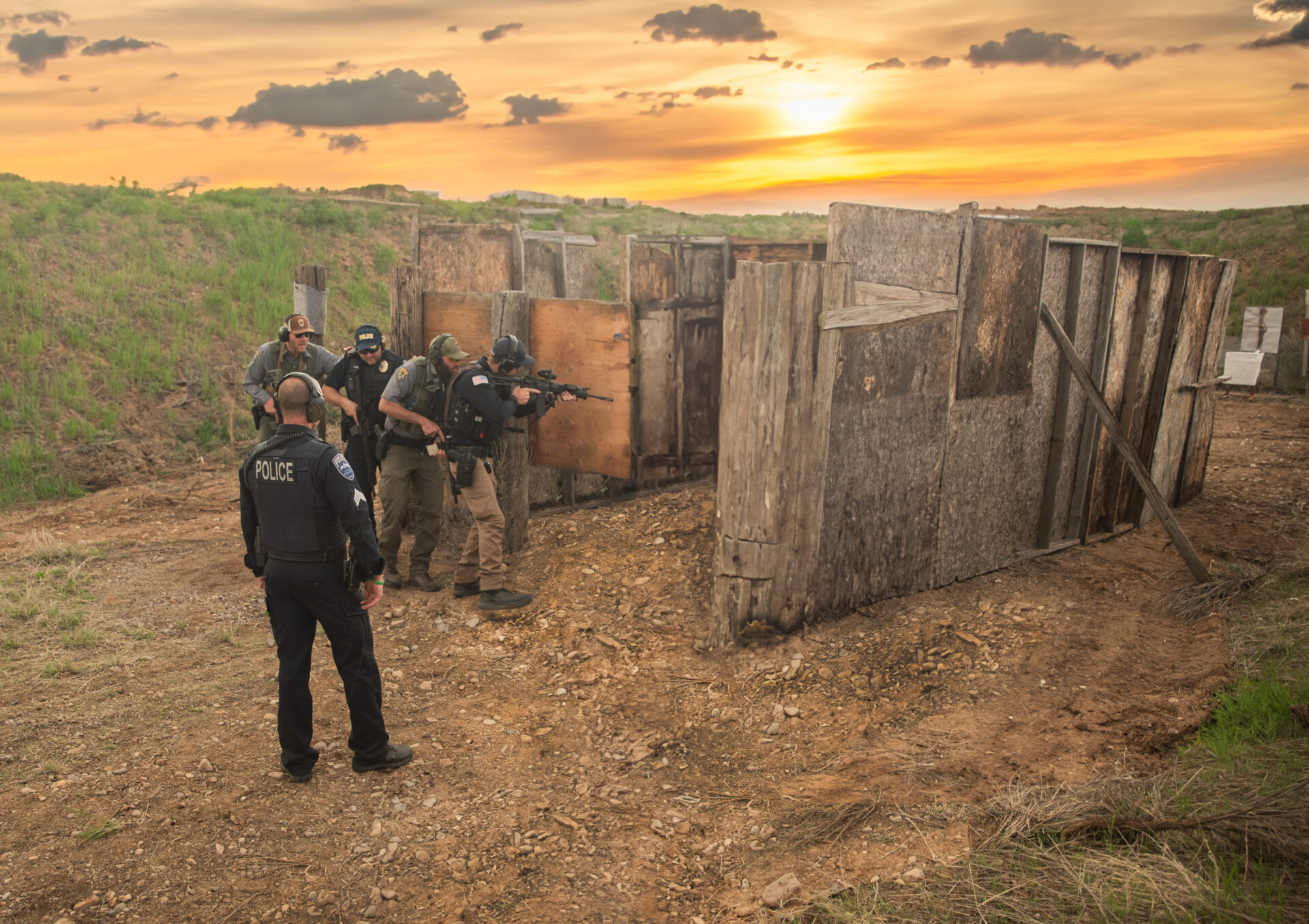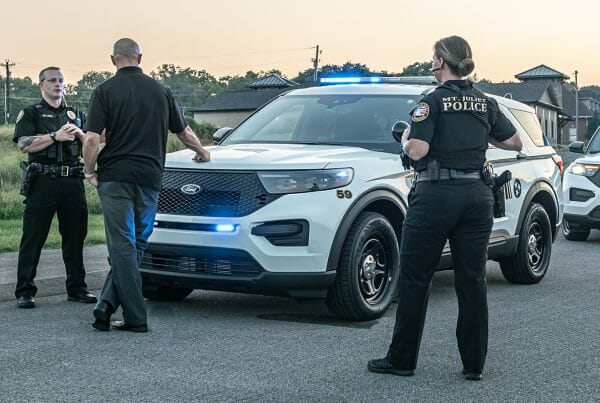How changing your agency’s mindset about report writing can set you up for long-term employee satisfaction and agency stability, without sacrificing the important stuff.

The other day, I was bs’ing with some cops “conducting market research” at a regional firearms training I was attending. During our “serious and focused research discussion”, one of the younger cops in the group was complaining about having to write an incident report and whined, “Why do we even need to write reports? Isn’t that what the body cams are for?”
We all laughed, teased him (you know, the standard stuff like, “you’re doing more work trying to get out of this than it would take to just do it…” etc.), and the conversation moved on, but I couldn’t get that question out of my head! Without really knowing it, that young officer was pondering on one of the core issues plaguing modern policing.
I mean, the answer to his direct question is quite simple; it won’t work because the camera can’t see what’s inside your mind. What you knew before the events occurred and how you perceived them matters, and there’s only one way to get at that info. You have to write it down.
Now, that’s not to say that using footage to help with report writing isn’t possible. Lots of camera companies provide a transcript of the footage, and with a couple of Amazon’s shoulder launched drones you could cover your incident from a variety of angles, and probably get a pretty complete picture of what happened. But it will never be the whole picture, at least not until Elon’s brain interface becomes mainstream…
But that’s not REALLY the question the young officer was asking. It’s not his proposed solution of using body camera footage for narratives that intrigued me about the young officer’s statement. It’s the problem he was trying to solve; report writing is burdensome on agencies.
Understanding the REAL Problem with Report Writing
I wrote more about this in different blog post, but with a shift to law enforcement accountability and transparency being handed down through our governments lately, administrators are stuck between the public’s demand for transparency and reality of their department’s ability to do the work needed to be transparent.
The problem isn’t that the data they want from law enforcement is a bad thing to collect or release. I subscribe to the train of thought that accurate information in the hands of decision makers will help them make better decisions. I also tend to view these mandates as an opportunity for law enforcement to tell their own story; that stalwart men and women serve their communities honorably and professionally day in and day out! Whether or not people actually listen is another issue entirely, but I digress.
The real problem is that report writing is no longer simply documenting the facts of the case. In fact, the bulk of the time spent writing a report is spent on mandated statistical data collection. This information often has no bearing on a LEO’s primary function, to enforce the law.
Additionally, the requirements are so specific and complicated, and often ask for information and use terminology that contradicts with how an officer was trained to collect and relay information. And although individually, none of them require a huge demand on time, with each added set of requirements mandated by this organization, or that special interest group, “it just takes 5 minutes to do” starts stacking up, especially at scale. And often there’s often no grant funding available for compliance, so you, the Administrator, are left to decide where your agency has to cut corners to make it work. As noble as each effort may be, you’re being forced to choose between responding to calls and meeting the clerical demands required to stay compliant with those regulations. It’s a no-win scenario for everyone involved.
Considering that perspective, that young officer was much wiser than I initially gave them credit for. The million-dollar question he was asking wasn’t “why can’t I use camera footage to write my report?” It’s, “How can I relieve the stress that record keeping is causing my department?” (Okay, maybe it was a little more self-centered than I’m giving him credit for here, but cut the kid some slack…)
The solution lies in a mindset shift, and technology to match.
There are a couple of things we can depend on for the future of Policing:
- Society has, and will continue to have, a hard time achieving balance between their desire for crime suppression and their tolerance for what it takes to make that happen. But no matter which way the pendulum of public opinion swings, their demand for information from law enforcement agencies is only going to increase.
- Technology will continue to grow at an alarming rate, and just like with other industries, law enforcement will offload more and more responsibility from their staff to it. But the need for living breathing officers will never be eliminated, no matter how good the tech gets.
There’s a lot to unpack in those two statements, but what does this mean for the future of report writing? A paradigm shift in the way we think about report writing will be required to keep up with the demands of the future.
Right now, many agencies are either shifting their officer’s responsibilities away from proactive enforcement and/or hiring more clerical personnel to address the demand for information, but that solution creates more overhead than it solves.
The Officer has all the information to complete the compliance reporting requirements, but those requirements are too difficult to understand, and would require significant amounts of training to address. It’s much easier to train one or two people to do it, and feed everything through them. But in this method, the officer guesses what’s needed and how it should be entered (or doesn’t do it at all), sends the report to their supervisor and/or records, who kicks it back because it’s wrong. Rinse and repeat until eventually they get it right. A single report will run through your agency several times before it’s correct. This is time consuming and frustrating for everyone involved. Now multiply this by all the reports you have, and you’ve got a nearly unmanageable problem that was supposed to be the solution.
There’s a better way.
The incident reporting in EFORCE Software was built specifically to address this problem, and the fall out it causes throughout your agency. Because the mandated reporting standards are built directly into the software and dynamically adapt to the requirements of each incident, you eliminate the guesswork and the ring-around-the-report game your staff is playing.
If you guide the officer through their requirements step-by-step, they’ll complete the work in a FRACTION of the time. The beauty of this system is that your officers do the work once. No more back and forth. It’s done correctly, the first time, and they move on.
Good software, such as EFORCE, not only shows them what to enter, and where to enter it, but it also recycles information whenever possible, to cut down on the amount of data entry required to complete a report. There’s simply no time for entering the same piece of information more than once.
And with EFORCE, you are partnering with a company that is dedicated to growing into the future. For the past 20 years, our products have moved steadily towards our goal of eliminating the menial and mundane tasks from an Officer’s workload. We want to free them up for the work only they can perform, without offloading that to someone else at your agency.
What can I do today?
The best way to relieve the pressure that record keeping is placing on your agency is to reduce the amount of work it takes to complete it. EFORCE is ready to make that happen for you! To schedule a customized demonstration about how EFORCE can help your agency, click here, or call 888-570-4943, x. 3.




